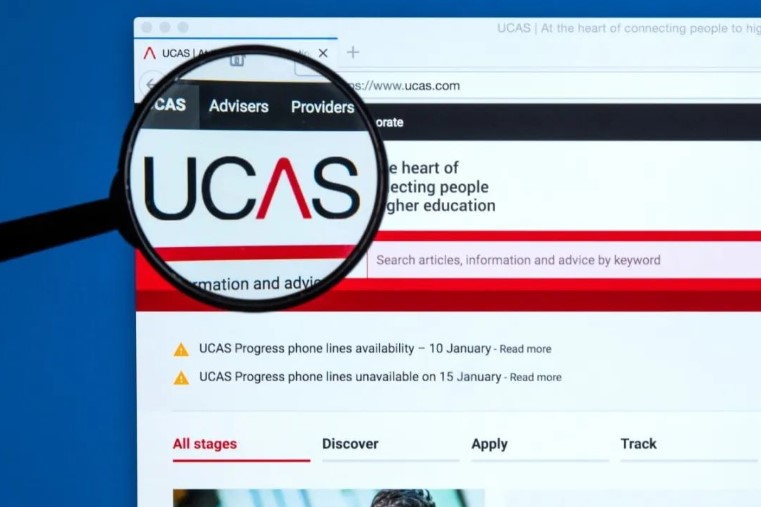Introduction
When applying to universities in the UK, the Universities and Colleges Admissions Service (UCAS) serves as the central hub for managing applications. Navigating the UCAS system is crucial as it streamlines the application process and ensures that students find courses that align with their academic strengths and career aspirations.
Choosing the right course is a significant decision that can shape your future, making it essential to approach the selection process thoughtfully. This guide is designed to help prospective students navigate the UCAS platform effectively, offering step-by-step advice on selecting a course that best suits their goals and ambitions.
Understanding Your Interests and Strengths
Understanding your academic interests and personal strengths is the first crucial step in selecting the right course through UCAS. Start by reflecting on the subjects you are passionate about and the areas where you excel. Consider what motivates you: creative problem-solving, scientific exploration, or understanding human behavior.
Aligning your course choice with these interests ensures you remain engaged and motivated throughout your studies. Consider how your strengths—such as analytical thinking, creativity, or leadership—can be applied to different fields. This self-assessment helps you choose a course that resonates with you and sets the foundation for long-term academic and career success.
Several aids exist for learners in this process; several address surveys and questionnaires, such as the Myers-Briggs Type Indicator Test or the Holland Code (RIASEC) Test, will inform you about possible occupations suitable to your interests and abilities.
School-based or online academic counseling services help students depending on their academic performance and career choice. These tools also make the selection more strategic because the courses you would consider will interest you and hint at a profession you want to pursue in the future.
Researching Courses and Universities
When researching courses and universities through UCAS, it’s essential to approach the process methodically to make an informed decision. Start using the UCAS course search tool to explore the courses available in your field of interest. Please pay close attention to course content, as it varies widely, even among programs with similar titles.
Look into the teaching methods (e.g., lectures, seminars, practical work) and assessment styles (e.g., exams, coursework, projects) to determine if they match your learning preferences. Understanding these aspects will help ensure that the course structure aligns with how you learn best and what you enjoy most.
Comparing universities is equally essential, as it influences your academic experience and personal growth. Consider university rankings for your chosen course, but also look beyond the numbers. Investigate the facilities available, such as libraries, laboratories, and study spaces, as these will be crucial to your success.
Student satisfaction scores can provide insights into the overall student experience, including teaching quality, support services, and campus life. Lastly, consider the university’s location, as it affects your living experience and opportunities for networking, internships, and part-time work. By weighing these factors, you can narrow your options and choose the right course and university for your needs.
Understanding UCAS Tariff Points and Entry Requirements
Understanding UCAS Tariff Points and entry requirements is crucial when applying to UK universities. UCAS Tariff Points are a system used to translate qualifications, such as A-Levels and BTECs, into a numerical score.
Universities then use this score to set entry requirements for their courses. Each qualification is assigned a certain number of points based on its grade. For example, an A* at A-Level is worth 56 points, while an A is worth 48. Knowing how these points are calculated helps you gauge whether you meet the entry requirements for your desired course.
It’s essential to thoroughly understand the specific entry requirements for each course you’re interested in. Beyond the Tariff Points, universities may require specific grades in particular subjects or additional qualifications like an Extended Project Qualification (EPQ).
Research each course’s entry requirements on the UCAS website and university pages to ensure you meet or exceed them. If you’re close to the required points, consider ways to boost your score, such as retaking exams or completing additional qualifications. You can position yourself competitively for your chosen courses by staying informed and proactive.
Utilizing the UCAS Course Search Tool
Using the UCAS course search tool effectively is critical to finding the right course for your higher education. To do so, navigate to the UCAS website and select the “Search for Courses” option. Then, enter your subject of interest or a specific course title in the search bar.
The tool will display a list of related courses offered by various universities. You can refine your search using filters such as course type (e.g., full-time, part-time), location, and entry requirements. These filters help narrow down your options based on your preferences and qualifications.
Once you have a list of potential courses, use the “save” feature to keep track of those that interest you. This allows you to revisit and compare them later easily. As you save each option, pay attention to the course content, university reputation, and location.
The UCAS tool also provides detailed course descriptions, including entry requirements and Tariff Points needed, which are crucial for ensuring you meet the eligibility criteria. By methodically using the UCAS search tool and saving your shortlisted courses, you can streamline your decision-making process and make more informed choices about your higher education journey.
Attending Open Days and Virtual Tours
Attending university open days and virtual tours is a crucial step in the decision-making process when choosing the right course and university through UCAS. Open days offer a unique opportunity to experience the campus environment, meet faculty members, and interact with current students.
During these visits, focus on gathering information that isn’t readily available online, such as the campus’s vibe, the staff’s friendliness, and the facilities’ quality. Ask questions about class sizes, teaching methods, career support services, and extracurricular activities. This firsthand experience can significantly influence your decision, as it allows you to visualize yourself in that setting.
Virtual tours and online resources are valuable alternatives if attending in person isn’t possible. Virtual tours often include interactive maps, 360-degree views of facilities, and video presentations by staff and students. To make the most of these resources, explore every part of the campus virtually and participate in live Q&A sessions if available.
Take note of any information that stands out and aligns with your priorities, such as accommodation options, student support services, and the overall student community. By fully engaging with open days and virtual tours, you’ll gain a deeper understanding of what each university offers, helping you make a well-informed choice.
Seeking Advice and Guidance
Seeking advice and guidance is a vital part of navigating the UCAS application process and making informed decisions about your higher education. Start by consulting your teachers and career counselors, who can provide personalized advice based on your academic strengths and career aspirations.
They can help you identify suitable courses, ensure your application materials are strong, and provide valuable insights into what universities may be looking for in candidates. Current students or recent graduates from the universities you’re considering can also offer firsthand perspectives on what to expect, helping you make a more informed choice.
In addition to in-person advice, online forums and social media platforms are valuable resources for student reviews and advice. Platforms like The Student Room or specific university Facebook groups allow you to connect with other applicants, current students, and alumni, providing a broader perspective on university life and courses. These platforms can offer real-time advice, answer your questions, and help you feel more confident in your decisions.
Lastly, don’t hesitate to reach out to UCAS and university helplines if you need further support or clarification. UCAS advisors can guide you through the application process, answer specific queries, and offer advice on navigating the system.
University helplines can provide detailed information about courses, entry requirements, and application procedures. Utilizing all these resources ensures you have a well-rounded understanding and support network as you make crucial decisions about your future.

Making Your Final Decision
When making your final decision on which course to pursue through UCAS, it’s crucial to approach the process methodically. Start by narrowing down your options based on the extensive research you’ve conducted.
Revisit your shortlisted courses and universities, considering factors like course content, teaching style, location, and your long-term career goals. Create a pros and cons list for each option, focusing on how well each aligns with your academic interests, strengths, and aspirations.
Trusting your instincts is also essential. After all the research and advice, listen to what feels right for you. Sometimes, your gut feeling about a university or course can be a strong indicator of where you’ll be happiest and most successful. Make an informed decision by considering both logical factors and your personal preferences.
Finally, prioritize your choices when finalizing your UCAS application. Carefully rank your preferred courses, ensuring that your top choices are listed first. Double-check that all the details are correct and that you meet the entry requirements for each course.
Once you’re confident in your selections, submit your application, and be sure to keep track of deadlines and any follow-up actions required. By combining thorough research, personal insight, and strategic planning, you’ll be well-prepared to make the best possible decision for your future.
Submitting Your UCAS Application
Submitting your UCAS application is a critical step in your journey to higher education, and it’s important to be well-prepared for it. The UCAS application timeline typically begins in September and extends to January for most undergraduate courses, with some courses having earlier deadlines in October, such as those for Oxbridge or medical programs. Make sure you are aware of these deadlines and plan accordingly to avoid any last-minute stress.
Writing a compelling personal statement is a key component of your UCAS application. This is your opportunity to showcase your passion for your chosen subject, highlight your achievements, and explain why you are a strong candidate for the course.
Tailor your statement to reflect the specific courses you’re applying for, ensuring it aligns with what the universities are looking for in applicants. Be authentic and let your enthusiasm for the subject shine through, while also demonstrating your academic abilities and any relevant experiences.
Before submitting your application, go through a final checklist. Ensure all sections of your application are complete and accurate, from personal details to your education history. Double-check that you meet the entry requirements for each course, and that your personal statement is polished and error-free. Finally, review your list of chosen courses to ensure they are ranked in order of preference.
Once you’ve verified everything, you can confidently submit your application through the UCAS portal. After submission, keep an eye on your email and the UCAS Track system for updates on your application status.

Conclusion
Choosing the right course through UCAS is a pivotal decision that requires thorough research and self-assessment. By understanding your academic interests, strengths, and long-term career goals, you can align your course choice with your aspirations, ensuring a more fulfilling and successful university experience.
The process of selecting the right course isn’t just about meeting entry requirements—it’s about setting the foundation for your future.
Take full advantage of the resources and support available to you, such as career counseling, open days, and the UCAS Course Search Tool. These resources are invaluable in helping you make an informed decision that suits both your academic and personal needs.
Remember, choosing the right course is the first step in your higher education journey, and making a well-informed choice will help pave the way for academic success and personal growth throughout your university years.